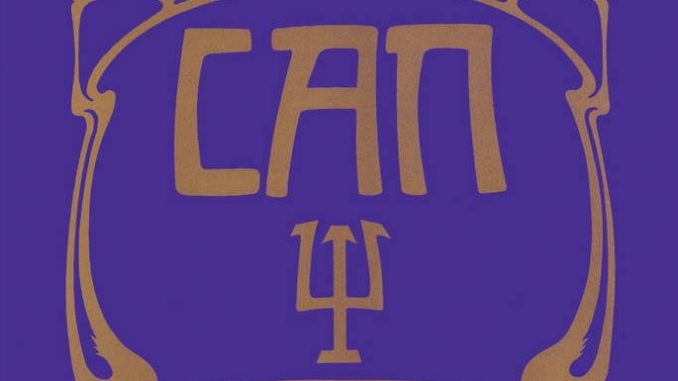
‘Future Days’, Can’s fifth album proper, could to this day probably be one of the more misunderstood. Many critics, even those very knowledgeable in all matters Krautrock like Julian Cope, seem to have missed the point. In my humble opinion, it is their best, an album that transcends the limits of any one certain genre and introduces musical elements that are not only used to this day but will remain such – in future days.
Still, there could be at least one valid reason for the misconceptions this album holds. In Krautrocksampler, his detailed, at times brilliant recount of the genre, Julian Cope said about the album, “It was the start of the deification and demystification of Can, and the end of their rocking freak out trip… Future Days was schizophrenic stalemate”. While the first part might be correct, the album was neither schizophrenic nor a stalemate.
After three brilliant albums, the introductory ‘Monster Movie’, ‘Tago Mago’, one of the best double albums of its time and a true ‘rocking freak out’ that was their fourth ‘Ege Bymayasi’ (their second, ‘Soundtracks’, was a hybrid stop-gap between the almost indescribable, but very different singing styles of Malcolm Mooney and Damo Suzuki), ‘Future Days’ was effectively something different, an end and a beginning.
It was certainly the end of Damo Suzuki’s spell with the band and it could have been that rocking freak-out Cope is so fond of (who isn’t?). Unfortunately, it also spelled the end of Can’s most productive streak, as all their albums proper that followed were actually hit-and-miss affairs. Fortunately, on the other hand, it brought along with it a musical inspiration for everything that came from then on, from ambient, motorik, and various new wave experimentations to post-rock on the level that was Velvet Underground’s ‘Velvet Underground & Nico’.
So where could the problem lie? With the ‘Future Days’ itself. The opening title track, that is. It is probably the best musical piece that came out of Krautrock and one of the best in modern music. The combination of Czukay’s and Leibzeit’s intricate and undefinable rhythms, Karoli’s scratchy, on the edge of funky guitar scratches, Schmidt’s absolutely inventive use of synthesizers (almost unknown at the time) brought an almost mystic musical experience with such a number of musical strands that in themselves created an infinite number of possible musical paths.
Then there were Suzuki’s vocals, a story of its own. Damo Suzuki to this day remains one of the most inventive vocalists around. During his stint with Can, he was singing in something that certainly resembled the regular English language, with Suzuki interpreting his vision of what it should sound like, sometimes using ‘regular’ English words, sometimes, twisting them, and sometimes inventing new ones. You can call it ‘Damoinglish’. ‘Future Days’ itself was the pinnacle of Suzuki’s invention – he was whispering words that could have come from a language that is yet to be, with just the main phrase being clear and understandable to everybody. Future days, indeed.
Everything that comes afterward probably would pale in anybody’s ears, no matter how good it was. And the rest of the album almost reaches that absolute brilliance only once, with the ever-shifting, almost 20 minutes-long closer ‘Bel-Air’, which some of the current best post-rock/ambient bands wouldn’t be able to come up with.
Both ‘Spray’ and ‘Moonshake’ rank among the best music Can have come up with, on any of their albums, but suffer the fate of being sandwiched between the grandeur of the two incredible ‘bookends’. That is particularly the case with ‘Spray’ with its incredible rhythmic shakes, while ‘Moonshake’, the briefest track on the album, indicated the more pop-oriented direction Can would go on to after Damo Suzuki left.
In many ways, with ‘Future Days’, Can set a specific musical trap, for the listeners and for the band itself. It includes some of the best music they made and one of the best modern musical pieces anybody ever made. That certainly makes it an absolute classic.


